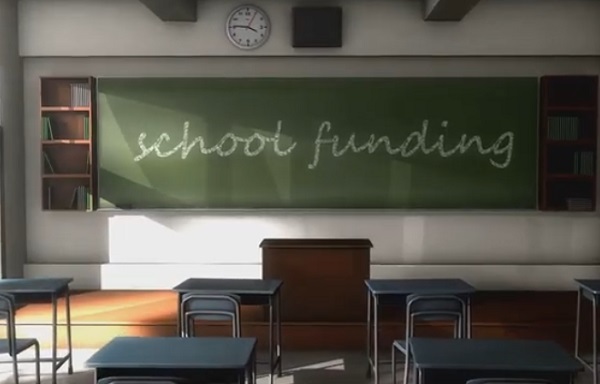Alberta
Alberta Engineering Technology Professionals paving the way for refugees to find work in their field

News Release from the Association of Science and Engineering Technology Professionals of Alberta
ASET waives fees for refugees, offers fast route into tech careers locally
Through two initiatives, the Association of Science and Engineering Technology Professionals of Alberta (ASET) is making it easier for engineering technology professionals who are refugees from war-torn countries to earn their professional designations and find work in their field without having to return to school.
Effective immediately, ASET is waiving all application fees for refugees seeking to become members and attain their designations (e.g. certified engineering technologist). These fees, which include the application fee, prior learning assessment and recognition (PLAR) fee, ASET professional practice exam fee, and certification exam fee, can cost up to almost $1,000 per member over time. ASET recognizes that many applicants who are refugees from countries in crisis are also suffering significant economic hardship.
ASET’s fee waiver for refugees reflects its overall commitment to welcoming and supporting newcomers. In 2016, it launched a program designed to offer foreign-trained and other engineering technology professionals a faster route to establishing careers: the competency-based assessment program. The first of its kind in Canada and pioneered by ASET, it enables them to gain purchase in their career fields without having to return to school full-time. ASET eliminated the Canadian work experience requirement, making it one of the few regulatory bodies in Alberta to do this.
After Russia invaded Crimea in 2014, single mother Mila Wagner made the difficult decision to leave her home and job in Ukraine and move to Alberta two years later with her three-year-old son, Nikita. When she arrived in Alberta in 2016, she discovered that her multiple engineering technology-related degrees from Ukraine did not translate in the Canadian employment market and no one would hire her. She had to take on menial work until she was able to earn a civil engineering technology diploma at Lethbridge College.
Had she known about ASET’s competency-based assessment program, she could have been fast-tracked into earning an ASET designation – subject to having the required application documentation – and ultimately working in a career-related job in half to a quarter of the time required to complete an additional engineering technology diploma in Canada.
While she praises the excellent civil engineering technology education that she received at Lethbridge College where the instructors are top-notch and go above and beyond to help their students, she wishes she’d known about the ASET program.

Mila and Nikita celebrating a milestone in their new home town
“If I could have been accredited through ASET from my previous schooling in Ukraine, I could have been positioned in a job in my field sooner,” said Wagner, now an ASET member. “I think the competency-based assessment program combined with application fee waiver will be a game changer for refugees from Ukraine and other countries.”
“With our application fee waiver for refugees now in place and our competency-based assessment program already established and proven to help newcomers, ASET is making it easier than ever for refugees with tech backgrounds to get on the career paths for which they were educated in their home countries,” said ASET CEO Barry Cavanaugh. “Alberta and Canada as a whole need more people with the technical knowledge and experience to contribute to our province and nation and we value what these newcomers bring.”

ASET CEO Barry Cavanaugh
How the competency-based assessment program works:
Foreign-trained professionals who have passed an ASET-approved English language proficiency test and are seeking certification and an ASET certified engineering technologist (CET) or certified technician designation (CTech) now undergo a competency assessment. This includes submitting academic credentials, work experience documents – such as CV, competency summary, job descriptions, and references – confirming their work experience locally and abroad. They then complete a professional practice exam that tests them on Alberta-specific legislation and professional ethics, and the ASET certification exam (if applying for the CET designation) that tests them on their technical competency.
In some cases, foreign-trained professionals are not able to access academic documents. For example, if they are refugees from a war zone, their academic institution may have been destroyed. ASET’s PLAR model allows foreign-trained professionals who are unable to produce academic transcripts to complete a work portfolio to demonstrate equivalency to the academic requirements. Skills and knowledge obtained outside of an academic program are evaluated for the purpose of recognizing professional competence, and certification exams test for the educational standard.

Happy times ahead!
About ASET
ASET is the professional self-regulatory organization for engineering technologists and technicians in Alberta. ASET currently represents over 16,000 members, including full-time technology students, recent graduates and fully certified members in 21 disciplines and more than 120 occupations across a multitude of industries.
Alberta
Jason Kenney’s Separatist Panic Misses the Point

By Collin May
Time was a former political leader’s expected role was to enjoy retirement in relative obscurity, resisting the urge to wade into political debate. Conservatives generally stick to that tradition. Ralph Klein certainly did after his term ended. Stephen Harper has made no attempt to upstage his successors. Yet former Alberta Premier Jason Kenney can’t seem to help himself.
From the boardroom of Bennett Jones, one of Calgary’s oldest law firms, Kenney recently offered his thoughts on the unspeakable horrors that await the province should it entertain a debate (perhaps even call a referendum) on separating from Canada. While dismissing Alberta separatists as a “perennially angry minority”, Kenney nevertheless declared a vote on separation would “would divide families, divide communities, divide friends for no useful purpose.” Business partnerships, church and community groups, even marriages and families would break apart, he warned, “shredding the social fabric of the province.”
It was a remarkable burst of untethered hyperbole, but it says more about the former premier than it does about the province he once led.
Kenney’s take on the history of Alberta separatism is telling. It’s a 50-year-old “discredited concept,” he said, whose acolytes “couldn’t get elected dogcatcher in this province.” Exhibit A in his analysis was Gordon Kesler, an Alberta rodeo rider and oil company scout who believed independence was the only way to save Alberta from Ottawa’s depredations. In a 1982 byelection, Kesler got himself very much elected as an MLA under the Western Canada Concept banner. He later lost in the general election to Peter Lougheed’s Progressive Conservatives, but Lougheed did not belittle Albertans for entertaining separatist notions. Instead, he asked for a mandate to fight Ottawa more effectively — and got it.
Kenney, by contrast, ridicules separatists while simultaneously painting them as an existential menace. Worse, he likens them to followers of Vladimir Putin and (perhaps even worse?) Donald Trump. “[I]f you just follow them on social media,” he claimed, one will quickly see that they cheered on Putin’s attack on Ukraine and Trump’s threat of making Canada the 51 st state.
Kenney’s latest intervention fits a pattern. As premier from 2019 to 2022, he could not resist trying to stamp out dissent. During the pandemic, he alienated political allies by dismissing their concerns about mandatory vaccines with contempt. He saw his ouster as UCP leader as the result of a Trumpian-inspired or “MAGA” campaign. UCP party faithful, however, said their rejection of him had far more to do with his top-down leadership style and habit of “blaming other people for the errors he made.”
What’s especially striking about Kenney’s separatist obsession is that he seems to understand as little about Albertans now as he did while premier. Albertans have long debated separation without the province descending into chaos. When Kesler won his seat, people talked about separation, argued its pros and cons, but couples were not running to their divorce lawyers over the issue and business partners were not at each other’s throats.
And there are legitimate reasons for concern about Canada’s social and political structure, as well as the role provinces play in that structure. Canada’s institutions operate largely on an old colonial model that concentrates power in the original population centre of southern Ontario and Quebec. This has not, and does not, make for great national cohesion or political participation. Instead, it feeds constant fuel to separatist fires.
The current threat to Canadian identity comes as well from the ideological commitments of our federal government. Early in his time as Prime Minister, Justin Trudeau declared Canada to be a “post-national” state. This sort of moniker is consistent with the popularly-designated woke doctrine that eschews the liberal nation-state, democratic procedures and individual freedom in favour of tribalist narratives and identity politics.
The obsession with post-nation-state policies has initiated the dissolution of the Canadian nation regardless of whether Quebeckers or Albertans actually vote for separation. We are all becoming de facto separatists within a dissolving Canada, a drift that current Prime Minister Mark Carney’s ineffective “elbows up” attitude has done nothing to reverse.
Kenney’s panicked musings about Alberta separatists would have us believe the province need only continue the fight for a better deal within the Canadian federation. Kenney pursued just such a policy, and failed signally to deliver. For too many Albertans today, his advice does not reflect the political reality on the ground nor appreciate the worrying trends within Canadian institutions and among our political class.
Kenney likes to associate himself with Edmund Burke, the father of conservatism and defender of venerable institutions. But Burke was known as much in his day for his sympathies with the American revolutionaries and their creation of an experimental new republic as he was for his contempt towards the French Revolution and its Reign of Terror. Burke’s conservatism still linked real actions with true words. It would be advisable, perhaps, to keep our own political language here in Alberta within the bounds of the plausible rather than fly off into the fanciful.
The original, full-length version of this article was recently published in C2C Journal.
Collin May is a lawyer, adjunct lecturer in community health sciences with the Cumming School of Medicine at the University of Calgary, and the author of a number of articles and reviews on the psychology, social theory and philosophy of cancel culture.
Alberta
Alberta Is Where Canadians Go When They Want To Build A Better Life

From the Frontier Centre for Public Policy
One in three Canadians chooses Alberta to start over. But to stay Canada’s top destination, it must fight Ottawa’s barriers and complacency
No province has captured the Canadian imagination quite like Alberta—and not because of oil.
One in three Canadians leaving their provinces in the past five years headed to Alberta. They were escaping stagnant wages, high housing costs and suffocating bureaucracy. They came for freedom and opportunity, and Alberta delivered. Its edge is cultural: it rewards enterprise instead of strangling it.
The question now is whether Albertans can keep that edge before Ottawa and complacency close in.
Prosperity, like liberty, vanishes the moment people stop fighting for it. If Alberta wants to remain Canada’s economic engine, it must continue to move forward, tearing down old barriers while fending off the new ones that Ottawa and other provinces are always erecting.
The cost of standing still is staggering.
Economists say provincial trade barriers (rules that prevent goods, services, and workers from moving freely) cost the Canadian economy up to $130 billion a year. For Alberta, even a 10 per cent reduction would be worth $7.3 billion a year.
When Quebec killed the Energy East pipeline that would have carried Alberta crude to eastern refineries, Alberta lost the chance to export oil worth as much as $15 billion annually.
That’s not theory. That’s lost paycheques, lost tax revenue and public services that never materialized.
Alberta has always been more willing than others to break free from the barriers that hold back growth. Liquor sales were privatized decades ago, as were property registries. The New West Partnership with Saskatchewan, Manitoba and B.C. opened labour mobility and procurement, though it has since stalled. Alberta doesn’t impose cultural tests and it doesn’t levy a provincial sales tax. Families arrive because life here is easier. They can work, start a business, raise kids or simply breathe without bureaucrats looking over their shoulder.
But cracks remain. Liquor shelves may be free, but the Alberta Gaming, Liquor and Cannabis Commission monopoly clogs the warehouse. Professional associations in law, teaching and health care are slow to recognize credentials and drown their members in red tape.
Procurement often tilts local, because, apparently, free markets stop at the city line. And like every other province, Alberta still bows to Ottawa’s anticompetition telecom rules, the dairy and poultry cartel and the banking oligopoly, systems that consistently benefit Quebec farmers and Bay Street lenders at Alberta’s expense.
And as if the old cracks weren’t enough, new barriers are appearing. One of the worst is protectionism. Canadians love mocking Donald Trump’s tariffs, yet happily embrace the same thing at home. “Buy local” sounds warm and fuzzy but props up cartels in groceries, banking, telecom and construction. The truth? We’ve imposed more barriers on ourselves than Trump ever dreamed of.
Prime Minister Mark Carney exemplified the problem when he promoted subsidies for canola farmers. It was a double insult. First, it showed Ottawa would rather hand out cash than negotiate hard. Second, it reminded farmers that the “help” isn’t free. They pay for it through their own taxes, scooped from Saskatchewan and Alberta, laundered through federal bureaucracy, then mailed back with a ribbon.
Carney also vowed that interprovincial barriers would vanish by July 1, 2025. That deadline came and went. His shiny new “process” for expediting infrastructure looks like more of the same: more Ottawa mediation that risks slowing everything down.
But it isn’t only economics standing in the way. Ideology is becoming a barrier of its own. Diversity, equity and inclusion has morphed into a system for entrenching gatekeepers. It compels people to think and act in ways they didn’t choose. It drains productivity, creates make-work compliance jobs and sorts people into categories. Worst of all, it punishes anyone who doesn’t conform. Alberta resists this infection better than most, but its universities and federally dependent agencies are already hooked.
Then comes debanking. In 2022, Ottawa showed how quickly it could freeze accounts, and banks complied without hesitation. Since then, regulators have only expanded their reach under the banner of anti–money laundering and climate policy. The message is blunt: if Ottawa decides your sector is undesirable, access to financial services can vanish. For Alberta, with its energy industry branded a planetary threat, this is no hypothetical.
A free economy is meaningless if citizens can be financially exiled from it by decree. Alberta must shield its people by turning ATB, its provincially owned bank, into a fortress institution and enshrining access to financial services as a civil right.
So what does moving forward mean? It means doubling down on being the most desirable province to live and work. That requires bold reforms. Cut regulators down to size. Protect banking access in law. Decentralize big-city governments to make them more accountable and give residents real choices. Reform health care to expand choice and slash wait times. Deregulate housing and trucking to lower costs. Confront public-sector unions that act as ideological monopolies.
Canada loves to brag about free trade, but governs like a feudal kingdom. Alberta has already shown that a freer path is possible. The task now is to resist cartels, fight the banks, tear down old walls and stop new ones from rising.
Alberta has always been a frontier of builders, risk-takers and prosperity seekers, and to thrive it must keep moving. If Alberta leads, it will stay prosperous and desirable. If it falters, doors will close.
The choice is clear: Alberta can either be strangled by regulations or break free and keep its frontier spirit alive.
Marco Navarro-Genie is vice-president of research at the Frontier Centre for Public Policy and co-author, with Barry Cooper, of Canada’s COVID: The Story of a Pandemic Moral Panic (2023).
-

 COVID-192 days ago
COVID-192 days agoDevastating COVID-19 Vaccine Side Effect Confirmed by New Data: Study
-

 Red Deer2 days ago
Red Deer2 days agoThe City of Red Deer’s Financial Troubles: Here Are The Candidates I Am Voting For And Why.
-

 Business2 days ago
Business2 days agoCanada Post is failing Canadians—time to privatize it
-

 Haultain Research2 days ago
Haultain Research2 days agoInclusion and Disorder: Unlearned Lessons from Palestinian Protests
-

 Business2 days ago
Business2 days agoYour $350 Grocery Question: Gouging or Economics?
-

 2025 Federal Election9 hours ago
2025 Federal Election9 hours agoProtestor Behind ‘Longest Ballot’ Chaos targeting Poilievre pontificates to Commons Committee
-

 Media2 days ago
Media2 days agoResponse to any budget sleight of hand will determine which audience media have decided to serve
-

 Education2 days ago
Education2 days agoClassroom Size Isn’t The Real Issue






